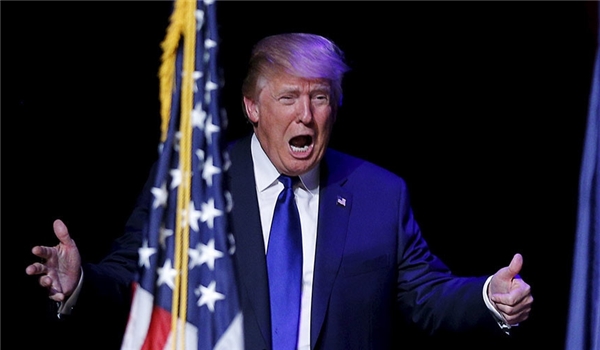
RNA - Trading partners including China, Canada, the European Union and Mexico are not sitting on their hands. They have hit the US with retaliatory tariffs in a tit-for-tat reaction.
This might look like a limited war in the understanding that Trump is all for free trade. But this view denies the fact that a tectonic shift is taking place in the world. It is a geopolitical war for ascendancy to global leadership; a contest between the US and China, in which the US is losing:
From pulling out of international treaties (Paris climate accord, Iran nuclear deal) to denigrating allies to starting trade wars, the impulsive actions of President Trump are upending the international order that has been in place since the end of World War II – and mostly favored the US and allies.
But even before President Trump’s belligerent foreign policy positions, America had been gradually losing its dominant role in world affairs. A power shift among the nations of the world began after the US and company invaded Afghanistan and Iraq - and failed. It has been accelerating when they decided to invade Syria and Yemen – and failed yet again.
As a consequence, not only do China and Russia contest America’s global role, a growing number of countries like Iran are also asserting an independent and increasingly influential role in regional economic and security developments. These are also the countries that stopped the US and company from turning Iraq, Syria and Yemen into an American proxy caliphate.
Indeed, the power shifts are increasingly visible. In the Middle East, the US hoped for decades to isolate Iran as a pariah and weaken the country until it fell. Today, that goal is unimaginable, though national security adviser John Bolton continues to imagine it under the influence.
Iran is and will remain an increasingly assertive and influential power in the region, defending and promoting its lawful interests and competing with the Saudi regime which favors sectarianism and American-Israeli dominance-leadership. The Russians are in the Middle East region for good, building on their long-standing relationships with Syria and Iran. Turkey, a regional power, also acts increasingly independent of the preferences of the US, its NATO ally, playing its own hand in the regional power game. Qatar and Oman have also troubled the Saudis that have been tasked with performing a part of the United States' regional designs in the Persian Gulf.
On balance, the US helped unleash these trends with the strategically fatal invasion of Iraq in 2003. The US occupation and failure to create a proxy state in Iraq was followed by subsequent US efforts to stir regional religious and political conflicts – including aiding and abetting ISIL and Al-Qaeda - to influence current trends in the region which all proved ineffective, as the continually ineffective policies in Syria show.
So this is not just China the US is no longer able to contain. The US cannot contain the rise of Russia and Iran either. The countries assert their own legitimate interests and roles in the region, like any other great power. They are consciously and actively re-balancing the power of the United States with great success, and they are doing it for regional peace and stability, not for dominance and certainly not for permanent war and occupation that benefits no one.
According to Fars News Agancy, America is losing because Trump’s “America First” foreign policy is based on the view that the US needs to defend its interests by acting alone, eschewing or withdrawing from multilateral arrangements for trade, economics, diplomacy or security. In response, allies distance themselves from the United States, while others are emboldened to act in an equally nationalistic and assertive way.
Like it or not, Trump’s America must learn the new rules and play differently in this new balance-of-power world, where others have legitimate interests and policies the US does not and cannot undermine or control.
847/940